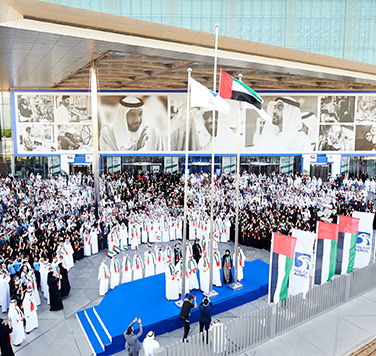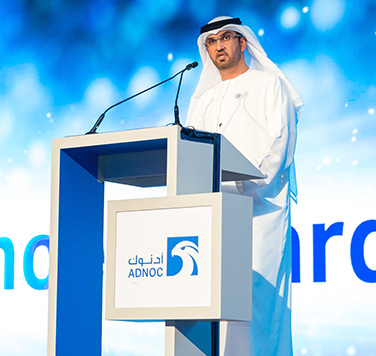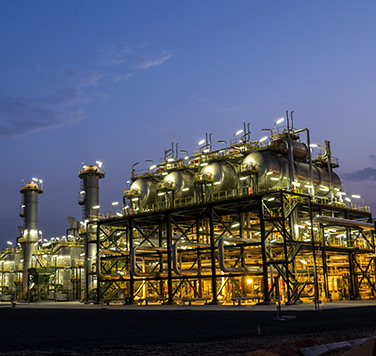Supreme Petroleum Council Approves ADNOC’s 2019-2023 Business Plan and AED 486 Billion CAPEX to Deliver Growth Across Value Chain
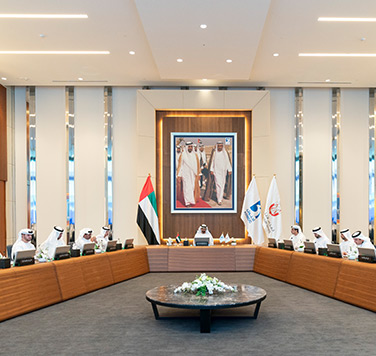
The SPC meeting was presided over by H.H. Sheikh Mohamed bin Zayed Al Nahyan, Crown Prince of Abu Dhabi and Deputy Supreme Commander of the United Arab Emirates (UAE) Armed Forces and Vice-Chairman of the SPC.
The SPC’s approval of ADNOC’s gas strategy will add potential resources that will enable the UAE to achieve gas self-sufficiency, with the aim of potentially transitioning to a net gas exporter. At its meeting, the SPC announced new discoveries of gas in place, totaling 15 trillion standard cubic feet. It also announced new discoveries of 1 billion barrels of oil in place and approved ADNOC’s new five-year business plan and capital investment growth of AED 486 billion (US $132.33 billion) between 2019-2023.
The gas strategy will sustain LNG production to 2040 and allow ADNOC to seize incremental LNG and gas-to-chemicals growth opportunities, where they arise, from the UAE’s dynamic demand/supply position and evolving energy mix.
H.H. Sheikh Mohammed reaffirmed the support of United Arab Emirates President, His Highness Sheikh Khalifa bin Zayed Al Nahyan, for ADNOC’s transformation into a performance-led, more commercially minded organization and its focus on creating long-term, sustainable value to enable the UAE’s economic ambitions. He also expressed the SPC’s recognition of ADNOC’s strong financial and operational performance, its use of creative and strategic partnerships to unlock and drive substantial value across the entire business and its strong commitment to maximizing in-country value.
The SPC is the highest governing body of the oil and gas industry in Abu Dhabi. The Council formulates, approves and oversees the implementation of Abu Dhabi's petroleum policy and follows up its implementation across all areas of the petroleum industry to ensure that the set goals are achieved.
The other SPC members attending the meeting, at ADNOC’s Headquarters, were H.H. Sheikh Hazza bin Zayed Al Nahyan, Vice Chairman of the Abu Dhabi Executive Council; H.H. Sheikh Mansour bin Zayed Al Nahyan, Deputy Prime Minister and Minister of Presidential Affairs; H.H. Sheikh Hamed bin Zayed Al Nahyan, Chairman of the Court of Abu Dhabi’s Crown Prince; H.H. Sheikh Dhiyab bin Mohamed bin Zayed Al Nahyan; H.E. Suhail Mohammed Al Mazrouei, UAE Energy Minister, H.E. Dr. Sultan Ahmed Al Jaber, Minister of State and ADNOC Group CEO; H.E. Hamad Mubarak Al Shamsi, Secretary-General of the SPC; H.E. Dr Ahmed Mubarak Al Mazrouei, Secretary General of the Executive Council; H.E. Khaldoun Al Mubarak, CEO and Managing Director of Mubadala; H.E. Riyad Abdul Rahman Al Mubarak, Chairman of the Abu Dhabi Department of Finance; H.E. Eng. Awaidha Murshed Al Marar, Chairman of the Abu Dhabi Energy Department; H.E. Abdullah Nasser Al Suwaidi, and H.E. Suhail Faris Ghanem Al Mazrui.
ADNOC’s integrated oil and gas strategy underpins its AED 165 billion Downstream investment plans announced in May, which will see the company triple production of petrochemicals to 14.4 million tons per annum by 2025. In May, at its Downstream Investment Forum, ADNOC unveiled a blueprint to create the world’s largest integrated refining and petrochemicals complex in Ruwais, which will enable it to further stretch the value of every barrel it produces. In addition to being used for power generation and other industrial uses, natural gas is the fuel that powers most chemical and refining processes.
Through a combined program of strategic partnerships and investments, ADNOC will increase its range and volume of high-value downstream products, secure better access to growth markets around the world and create a manufacturing ecosystem in Ruwais that will stimulate the creation of in-country value, private-sector growth and specialized job opportunities.
Meanwhile, the announcement of the discovery of significant new oil reserves endorses the Abu Dhabi government’s historic decision, earlier this year, to open six geographical oil and gas blocks for competitive bidding. Based on existing data from detailed petroleum system studies, seismic surveys, log files and core samples from hundreds of appraisal wells, estimates suggest these new blocks hold multiple billion barrels of oil and multiple trillion cubic feet of natural gas. The first exploration and production licenses are expected to be awarded in the first quarter of 2019.
The licensing strategy represents a major advance in how Abu Dhabi unlocks new opportunities and maximizes value from its hydrocarbon resources. It is also consistent with ADNOC’s approach to expanding its strategic partnerships across all areas of its business. The successful bidders will enter into agreements granting exploration rights and, provided defined targets are achieved in the exploration phase, be granted the opportunity to develop and produce any discoveries with ADNOC, under terms set out in the bidding package.
H.E. Dr. Al Jaber said: “His Highness Sheikh Mohamed bin Zayed and the SPC’s approval of our comprehensive growth plans, along with our historic gas self-sufficiency strategy, marks an important new, accelerated phase in the delivery of ADNOC’s 2030 growth strategy. In line with our wise leadership’s directives, our strategy will ensure we maximize value from all our resources to enable the UAE’s socio-economic ambitions. We will continue to unlock and deliver increased and commercially viable production from our oil and gas reserves, in response to the world’s growing demand for energy.
“The incremental increase in our oil production capacity will enable ADNOC to continue to be a reliable and trusted energy supplier that has the flexibility and capacity to respond and capitalize on the forecasted growth in demand for crude.”
“At the same time, the substantial investments we will make, in the development of new and undeveloped reservoirs, gas caps and unconventional resources, will ensure we can competitively meet the UAE’s growing demand for power generation and industrial use. While responding to domestic demand, we will maintain our international commercial commitments and seize incremental LNG and gas-to-chemicals growth opportunities,” H.E. Dr Al Jaber added.
Industry projections, H.E. Dr Al Jaber highlighted, validate ADNOC’s integrated oil and gas strategy. For the first time, the world is on the verge of consuming 100 million barrels of oil per day, with oil consumption increasing by an additional 10 million barrels per day by 2040, he said. Over the same period, demand for natural gas will increase by 40 percent, while the market for higher-value polymers and petrochemicals will grow by 60 percent.
The integrated gas strategy is the first time in ADNOC’s history it has been in a position to commercially and holistically unlock its abundant new gas resources. One of the challenges in developing parts of ADNOC’s gas resources is the ‘sourness’ of parts of Abu Dhabi’s gas. However, a number of factors, including the gas pricing reforms introduced in 2016, enabling more market-based pricing, the availability of more advanced technology and ADNOC’s growing and industry leading experience in developing sour gas reservoirs are making it possible for ADNOC to unlock more gas resources and increasing value extraction.
Under the new gas strategy, ADNOC will develop the Hail, Ghasha and Dalma project that taps into Abu Dhabi’s Arab formation, which is estimated to hold multiple trillions of cubic feet of recoverable gas. The project is expected to produce more than 1.5 billion cubic feet of gas per day. ADNOC will also unlock other sources of gas, which include Abu Dhabi’s gas caps and unconventional gas reserves, as well as new natural gas accumulations, which will continue to be appraised and developed as the company pursues its exploration activities.
Meanwhile, reflecting ADNOC’s role as an enabler of the UAE’s prosperity, implementation of its 2019-2023 business plan and capital investment growth of AED 486 billion will have a significant impact on the nation’s economy, with ADNOC’s in-country value program helping to drive domestic growth and diversification over an extended period of time. The benefits will include creating employment opportunities for UAE nationals and maximizing the use of local products, manufacturing and assembly facilities, services and infrastructure.




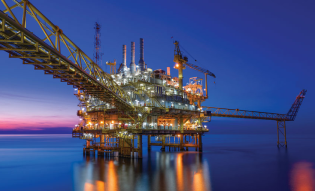
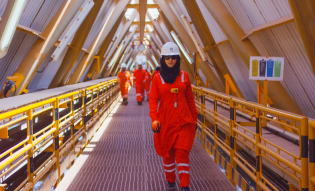

.ashx?h=748&w=1000&hash=23B79F2DEDB1AEAC75968BDB7A78AB66)


